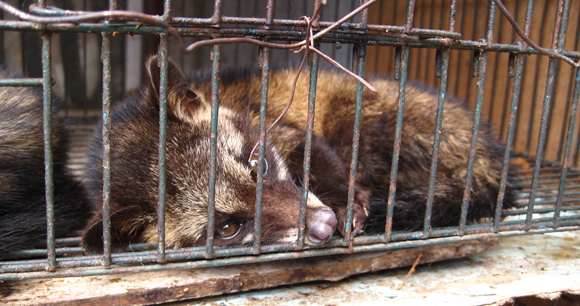
Washington, DC—Sunday, on the first day of the 117th Congress, the Preventing Future Pandemics Act was reintroduced in the House of Representatives to address the spillover of emerging infectious diseases from wildlife to humans.
The bill, first introduced in September, is spearheaded in the House by Reps. Mike Quigley (D-IL) and Fred Upton (R-MI) and is endorsed by the Animal Welfare Institute (AWI). It would prohibit the import, export, and interstate trade of live wildlife for the purpose of human consumption and allocate $35 million for implementation of this ban. It also calls on the State Department to pursue live wildlife market closures abroad through international coalitions and other diplomatic measures, with special consideration for indigenous peoples in communities that are dependent on wildlife consumption for food security.
“We enter this new year hopeful that vaccines will begin to curb the devastating impact of COVID-19, but we cannot lose sight of how this pandemic began and the urgent threat of future catastrophic diseases emerging from our trade in wildlife,” said AWI President Cathy Liss. “There is no question that, without decisive action, our unbridled exploitation of nature will continue to have devastating consequences for human health. The Preventing Future Pandemics Act helps address the root causes of zoonotic disease transmission by positioning the United States as a leader in reducing wildlife trade and the consumption of wild species.”
The legislation also allocates $150 million to the US Fish and Wildlife Service to hire, train, and deploy at least 50 new law enforcement officers in countries where there is a flourishing illegal trade in at-risk species. Additionally, the US Agency for International Development would receive $300 million to increase its efforts to promote global health and biodiversity, combat wildlife trafficking, and empower communities that wish to transition to sources of protein other than wildlife.
“For the sake of our health, our economy, and our livelihoods, preventing the next pandemic before it starts is perhaps the most important thing we must do. For that reason, Representative Upton and I reintroduced the Preventing Future Pandemics Act at the very first opportunity on the day the new Congress is sworn in,” said Quigley. “We were thrilled with the robust, bipartisan support the bill received last year and we’re committed to building on that momentum to see this bill become law.”
In the past 40 years, the worst pandemics and epidemics—including SARS, Ebola, HIV/AIDS, avian flu, swine flu, and Zika—have all originated with the trade and consumption of animals amid the destruction of their habitat. A significant portion of this multibillion-dollar industry is unregulated.
The United States is one of the world’s top importers of wildlife, responsible for an estimated 20 percent of the global wildlife market. While only a segment of this trade involves trafficking live wildlife for the purpose of human consumption, this sector must be eliminated to protect human safety and animal welfare.
The Senate is expected to reintroduce its version of the bill later this month.
Margie Fishman, (202) 446-2128, [email protected]